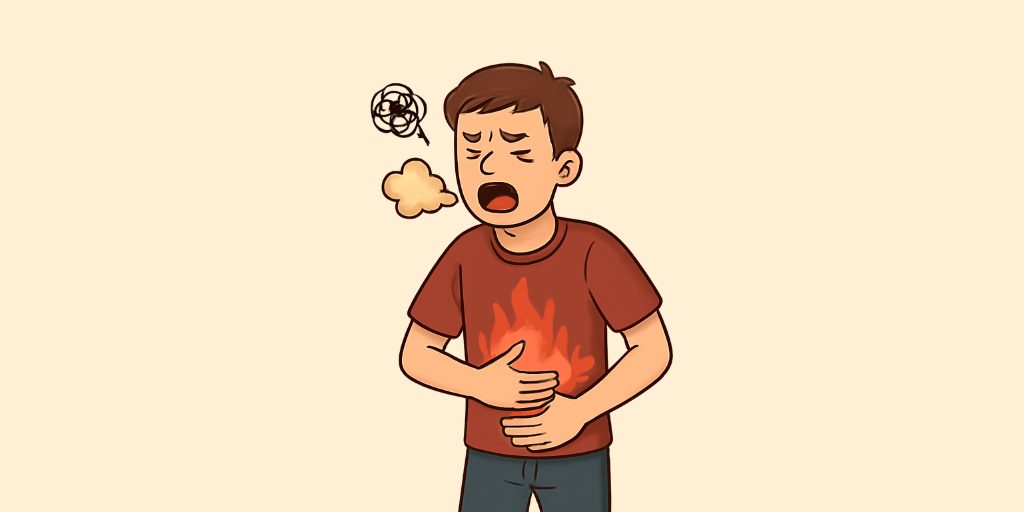Ayurvedic Name: Ajeerna
Description:
Ajeerna is indigestion, where food remains undigested due to weak digestive fire, resulting in heaviness, bloating, belching, nausea, and discomfort. The condition can be Vataja (gas and dryness), Pittaja (acidity and burning sensation), or Kaphaja (mucus accumulation and lethargy). Ayurvedic treatment includes Triphala, Hingvastak Churna, Ajwain, and dietary regulations to enhance digestion.
Signs & Symptoms:
- Amlapitta (Indigestion): Acidic taste in the mouth, often accompanied by heartburn and bloating.
- Vishama Agni (Irregular Digestion): Difficulty in digesting food, often leading to burping or bloating.
- Trishna (Excessive Thirst): Increased thirst due to the body’s attempt to neutralize excess acidity.
- Shwasa (Breathlessness): Difficulty breathing, particularly after heavy meals or acidic food intake.
- Kasa (Cough): A persistent cough, particularly at night, due to acid reflux irritation in the throat.
- Rukshata (Dryness): Dryness in the throat and mouth due to digestive disturbances.
Diagnosis:
Abdominal Examination and Food Recall History
Risk Factors:
- Dietary Factors
Spicy, Fatty, or Acidic Foods: Overconsumption of spicy, greasy, or acidic foods can disrupt the digestive fire and lead to indigestion.
Excessive Intake of Processed Foods: Diets high in processed, sugary foods can slow down digestion and promote acid reflux. - Lifestyle Factors
Eating Quickly or Overeating: Eating too fast or overeating can overwhelm the digestive system, leading to indigestion and discomfort.
Lack of Physical Activity: A sedentary lifestyle can slow down digestion, leading to bloating and indigestion. - Medical Conditions
Gastritis or Ulcers: Inflammation of the stomach lining or ulcers can lead to indigestion and discomfort.
Gastroesophageal Reflux Disease (GERD): A condition where stomach acid frequently leaks into the esophagus, causing indigestion and acid reflux.
Complications:
- Heartburn (Hridaya Shoola): ndigestion can cause frequent acid reflux or heartburn, leading to chest discomfort.
- Bloating (Vata Shotha): Indigestion often results in bloating, discomfort, and a feeling of fullness after meals.
- Gas and Flatulence (Vata Vyapada): Improper digestion of food can lead to excessive gas, leading to bloating and abdominal pain.
- Loss of Appetite (Aruchi): Chronic indigestion can cause a loss of appetite due to discomfort after eating.
- Irritable Bowel Syndrome (Pachaka Vata): Long-term indigestion may lead to IBS, causing abdominal cramping, diarrhea, or constipation.
Epidemeology:
Affects about 25-40% of adults globally, particularly those who consume a diet high in fat, spicy foods, or alcohol.
Peak incidence in individuals aged 30-60, with a higher frequency in those who are overweight, smokers, or have stress-related disorders.
Affects both men and women, but women tend to report higher rates due to hormonal changes, pregnancy, or stress.
Increased prevalence in developed countries due to diets rich in processed foods, caffeine, and alcohol.

